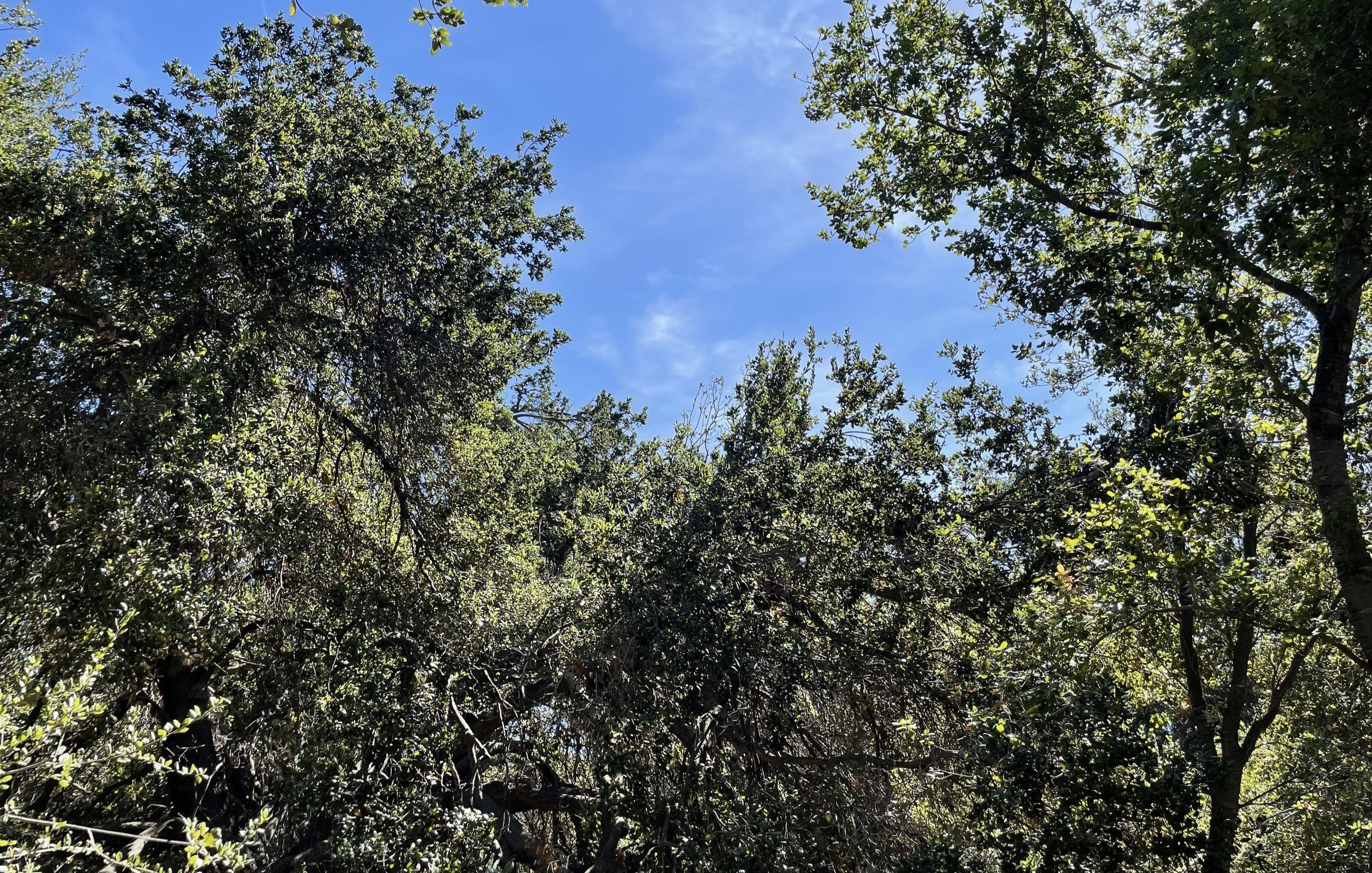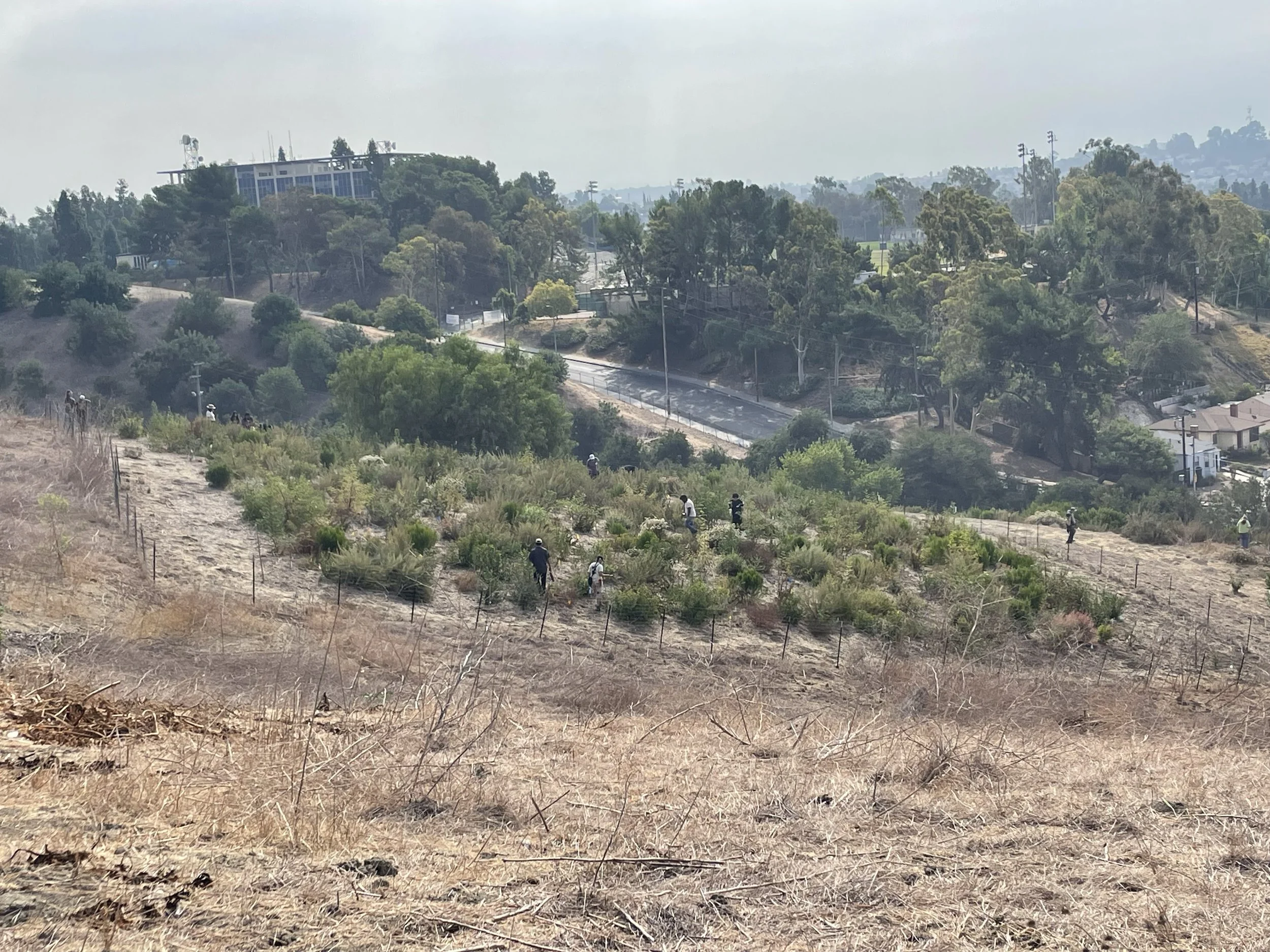
CASE STUDY: Ascot Hills Micro Forest
The largest micro forest in Los Angeles, this 10,000 square foot installation is creating dense native habitat on a south-facing slope in a large urban nature park. Created as a regional modification of the Miyawaki Method of Afforestation, this project was designed to include a dense planting of 4 distinct layers of native vegetation to achieve fast-growth and natural weed-suppression. Plants for this project were grown locally at the North East Trees Nursery, and research is being conducted by Loyola Marymount University faculty, students, and community scientists in order to determine the success of this project at improving biodiversity in the park. Information gathered from this project will help to refine and improve future urban ecological restoration/enhancement in our city.
QUICK PROJECT STATS:
Location: Ascot Hills Park, Los Angeles
Planted: January 2024
Sponsors: Waste Management
Partners: North East Trees, Loyola Marymount University, LA Parks
Designer: Seed to Landscape
Square Footage: 10,000
Number of plants: 850
Species list: Quercus agrifolia, Quercus lobata, Quercus engelmannii, Juglans californica , Sambucus mexicana, Heteromeles arbutifolia, Rhus integrifolia, Frangula californica, Malosma laurina, Baccharis pilularis ssp. consanguinea, Rhamnus ilicifolia ssp. ilicifolia, Ribes speciosum, Penstemon spectabilis, Acmispon glaber, Eriogonum fasciculatum, Epilobium canum, Keckiella cordifolia, Ribes aureum var. gracillimum, Stipa pulchra, Isocoma menziesii, Hazardia squarrosa, Datura wrightii, Encelia californica,
Ascot Hills Micro Forest at 8 months since planting with community scientists tracking survivorship data with the Ascot App.
SITE CONDITIONS:
Hillside: south-facing slope
Full sun
Originally a coastal sage scrub plant community
No artificial irrigation (hose bibs 200-400 feet away)
High weed pressure (black mustard, brome grass)
Well-draining soil
IMAGES:
March 2024
September 2024





